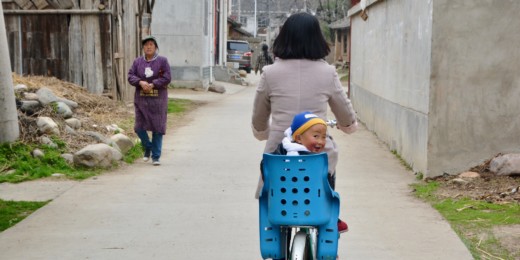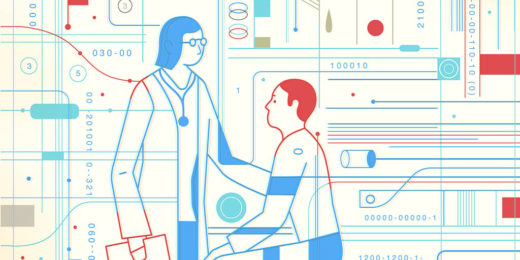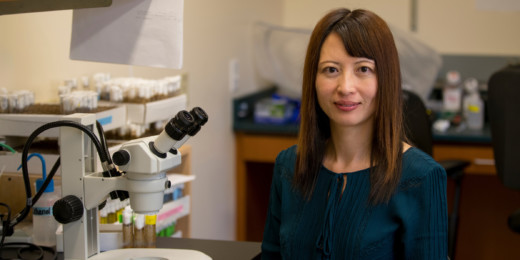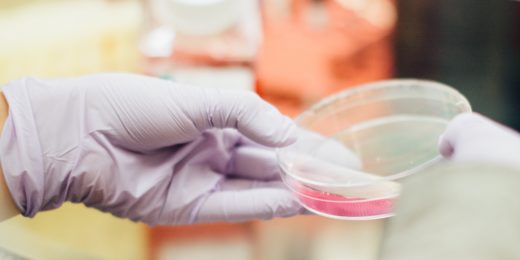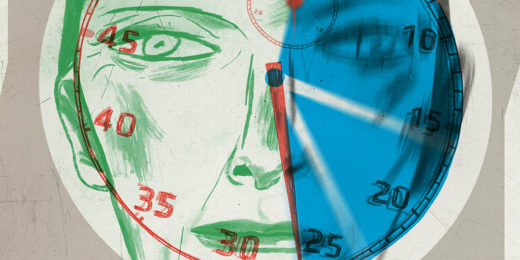Caregiver depression in rural China is unexpectedly pervasive and harmful to children's health. A Stanford team is working to help.
Month: September 2019
Math in the hospital? Boosting efficiency at Lucile Packard Children’s Hospital Stanford
A mathematician and his team used computational methods to improve efficiency at outpatient infusion center at Lucile Packard Children's Hospital Stanford.
Medicine and the Muse teams up with Sorbonne Université in Paris
A team from Stanford's Medicine and the Muse were special guests at the Sorbonne for a collaboration exploring empathy and emotion in clinical encounters.
Potential diagnostic, hope for a Parkinson’s disease treatment
A new discovery could provide a way of detecting Parkinson's disease in its earliest stages, before symptoms start. And it could accelerate the development of …
Clean Water for Health in Uganda: Taking initiative and finding a solution
A Stanford research team learns how health workers in rural Uganda improvise solutions to overcome struggles to maintain a constant supply of clean water.
Genetic takeover: How the bacteria behind Legionnaires’ disease use host cells
Scientists have used CRISPR-Cas9 screens to reveal more about how the bacteria behind Legionnaire's disease infects humans.
Medical device safety in the real world: Tapping EHR data
Researchers at Stanford are mining millions of de-identified patient records using machine learning to determine long-term safety of medical devices.
Shaving minutes off stroke treatment
An article in Stanford Medicine magazine examines how Stanford Health Care cut half an hour off its stroke treatment time, helping patients.
Managing a medical emergency — on a budget: Scope@10,000
As physician Ilana Yurkiewicz writes, it can be challenging to treat a patient with a hematological emergency who is concerned about the cost of care.
Empowering patients at Stanford Medicine X | CHANGE
At the Stanford Medicine X | CHANGE conference, patient innovators describe ways they can use their expertise to help others.
Will antidepressants work? Brain activity can help predict
Using neuroimaging and machine learning, researchers were able to predict whether antidepressants would help individual patients.
Living organ donation: ‘What about the donors?’ at Medicine X | CHANGE
Away from the headlines about organ donation, living donors often encounter challenges that get overlooked, like lost wages and insurance battles.
Rock solid science, passion help fuel successful startups
Entrepreneurs and scientists gathered at Stanford recently to discuss how to use scientific discoveries to launch startups and improve patient care.
Two hormones may help kids with autism
One challenge of caring for children with autism is that medications don't exist to treat the disorder's core features of social impairment and restricted, repetitive …
COPD takes center stage at Stanford Medicine X | CHANGE
Grace Anne Dorney Koppel and Ted Koppel aim to raise awareness and funding for Chronic Obstructive Pulmonary Disease at Stanford Medicine X | CHANGE event.
Demystifying Heart Failure: How to thrive with heart failure
In the final installment of the Demystifying Heart Failure series, physician Randall Stafford and graduate student Min Joo Kim explain how heart failure can be treated and managed.


